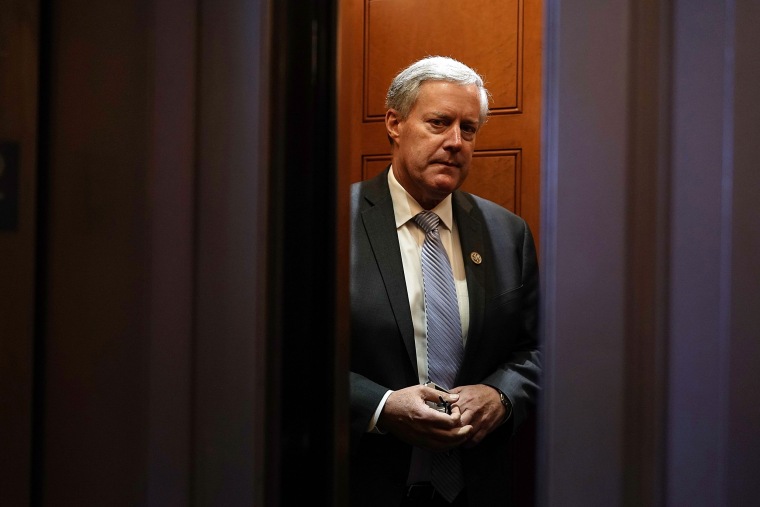Given the developments of the last several months, it's easy to forget that the first few economic aid packages, designed to respond to the coronavirus crisis, passed both quickly and relatively easily.
As regular readers know, the first came in early March, when Congress passed a relatively modest $8.3 billion emergency bill, focused on public-health infrastructure. Almost immediately thereafter, House Speaker Nancy Pelosi and Treasury Secretary Steven Mnuchin negotiated a second package, called the Families First Coronavirus Response Act. That, of course, led to the CARES Act: the $2.2 trillion economic aid package that served as a lifeline for millions of families and businesses.
These three bills passed over the course of about four weeks, just as the severity of the COVID-19 crisis came into focus. Nearly five months later, however, the latest round of talks about a new aid package -- what the White House is calling "Phase IV" -- has produced nothing but ill will.
There is, however, one key difference between the first three economic packages and the difficulties in negotiating a fourth: the CARES Act was signed into law on March 27, and Mark Meadows became the White House chief of staff on March 31.
During bipartisan talks last week, Senate Minority Leader Chuck Schumer (D-N.Y.) reportedly teased Mnuchin over the difficulties in reaching an agreement, telling the cabinet secretary that Meadows is "a bad influence" on him. As Politico reported soon after, "In other words, the Mnuchin that cut deals with Democrats is being tempered by the conservative chief of staff."
Those concerns appear to be intensifying. The Washington Post reported overnight:
In private, Pelosi began to refer to Meadows as "the Enforcer," the implication being he was there to ensure Mnuchin didn't make a deal with the Democrats.... Meadows had held a pessimistic view from the outset about the prospect for an agreement with Congress, based on his public statements. He argued in public and in private that Democrats were not serious about making a deal, but Democrats say it was Meadows more than anyone else who was responsible for the failure to deliver on this round of talks.
The article added that in recent rounds of negotiations, "Mnuchin would emerge from talks hopeful, pointing out areas of agreement," while Meadows often emerged emphasizing "how poorly talks were going and how far apart both sides were." It was also the White House chief of staff who encouraged the president to use executive orders and executive actions, which naturally had the effect of undermining the bipartisan talks.
Schumer told reporters last week that, unlike Mnuchin, who's proven to play constructive roles in these talks, Meadows' positions are "quite hardened and non-compromising."
For those who followed Meadows' congressional career, none of this comes as much of a surprise. As Dana Milbank explained in a column last week, "During his seven years in Congress, he developed an unsurpassed reputation for blowing things up and making sure bills didn't pass. But he has virtually no experience at getting things done."
Meadows, who ran a sandwich shop before succeeding in real estate, made a splash just months after taking office in 2013 by becoming an informal leader of a "suicide caucus" and primary architect of a 16-day government shutdown in a failed attempt to defund Obamacare. In 2015, he tried to oust House Speaker John Boehner by filing a "motion to vacate" that served as a no-confidence vote. Boehner, who prevailed but retired soon after, later told Politico's Tim Alberta that Meadows is "an idiot. I can't tell you what makes him tick."
In a normal political environment, no president would even consider a far-right congressman like this to oversee the White House, much less help lead major negotiations over economic policy.
But Trump saw Meadows say nice things about him on television, and since the president is leading a post-policy party that's indifferent toward governing, that was enough to forge an important and powerful partnership.
The nation is now dealing with the consequences of Trump's choice. This is the first time in his career that Meadows is being asked to take the lead on a major legislative package. At this point, the results speak for themselves.
Update: Meadows has reportedly decided to take this week off. How oddly appropriate.

